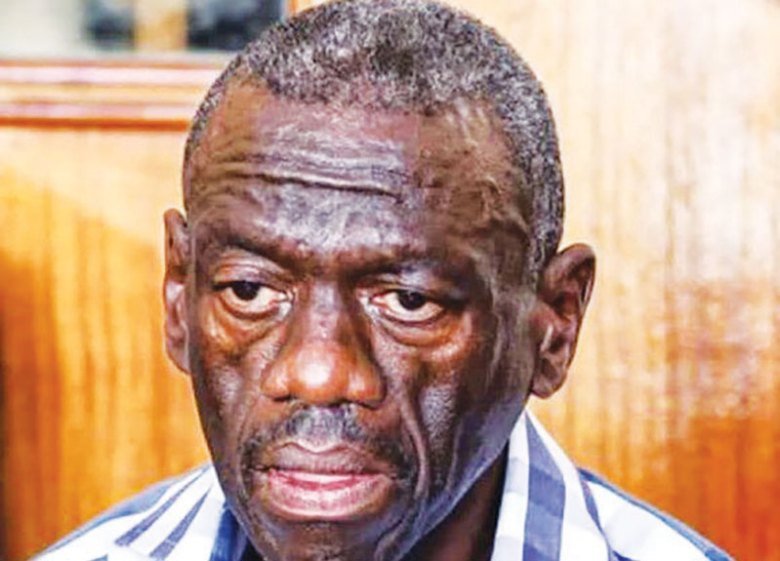It began as a disappearance that shocked the region: on 16 November 2024, veteran opposition figure Dr Kizza Besigye a four-time presidential candidate and longtime thorn in President Yoweri Museveni’s side was reported missing in Nairobi, Kenya. Days later he reappeared in the custody of Uganda’s security services and was flown back to Kampala. What followed was an unusual, politically charged sequence of detentions, military and civilian court hearings, international protests and legal manoeuvres that, a year on, have left Besigye still behind bars and charged with treason.
The disappearance in Nairobi and the allegation of abduction
Friends and colleagues in Nairobi say Besigye was last seen at an event there. Kenyan authorities opened an investigation into how a high-profile Ugandan dissident vanished from their capital and suddenly turned up in Uganda in the hands of Ugandan operatives a move widely described as an abduction. United Nations and human-rights bodies publicly expressed alarm, arguing the incident suggested cross-border repression and demanded explanations from both governments. Human rights groups later documented allegations that Besigye and his aide Hajj Obeid Lutale were taken from Kenyan soil by operatives and transported to Uganda without clear legal process.
Immediate detention and the General Court Martial
On 20 November 2024, Besigye surfaced in a military facility and was arraigned before the General Court Martial in Makindye, a hearing that underlined the extraordinary nature of the case: a civilian opposition leader being tried in a military forum. He and Mr Lutale were initially charged with offences including unlawful possession of firearms and ammunition, allegations the state said related to activity in several countries. The use of the military court sparked immediate controversy and criticism from lawyers, opposition MPs and rights organisations.
International and domestic outcry
The forcible return and the military trial prompted strong reactions. Amnesty International, Human Rights Watch and the UN human-rights office publicly condemned the abduction and called for the immediate release of Besigye and Lutale or, at minimum, for their rights to be respected. Kenyan authorities said they would investigate how the disappearance happened. The episode heightened fears of transnational repression the targeting of dissidents across borders and raised questions about Kenya’s ability or willingness to protect foreign political exiles.
The Supreme Court ruling and transfer toward civilian courts
The case took a constitutional turn at the start of 2025. On 31 January 2025 Uganda’s Supreme Court ruled that military courts lacked jurisdiction to try civilians and ordered that ongoing prosecutions of civilians in the General Court Martial be halted and transferred to ordinary civilian courts. The ruling represented a legal reprieve for Besigye and others, and forced the authorities to re-file or reframe charges in the regular justice system a complicated, politically fraught process. The government moved to implement the order, but the transition produced procedural wrangling and further court applications.
New charges, treason accusation and remand to Luzira
On 21 February 2025, prosecutors in a civilian magistrates’ court formally charged Besigye with treason, accusing him of plotting to overthrow the government a charge that carries the gravest penalties under Ugandan law. The Nakawa magistrates’ court remanded him to Luzira Prison. Human-rights organisations raised alarm: treason is a capital-punishable offence, and rights groups insisted Besigye’s detention and the manner of his return from Kenya raised serious due-process concerns.
Hunger strike, health concerns and legal fights
While on remand, Besigye’s legal team and supporters reported periods of deteriorating health and hunger strikes to protest his detention conditions and the way he was brought back to Uganda. Lawyers argued repeatedly that his rights to legal representation, medical care and fair procedure had been infringed including claims that he was initially held in non-gazetted military facilities and denied consistent access to counsel and family. Those claims fed into a string of court filings and public campaigns by domestic and international rights groups seeking his release or transfer to hospital.
Bail applications and continued remands
Throughout 2025 Besigye’s lawyers repeatedly sought bail. Judges grappled with competing legal issues: the gravity of the charges, questions about when statutory countdowns for mandatory review or release begin, and procedural technicalities arising from the switch from military to civilian jurisdiction. In August 2025 a Ugandan court refused bail on grounds that a required 180-day remand period began only when the case was moved to civilian court a ruling that left Besigye in custody despite arguments that he had already spent far longer in detention since November 2024. Rights groups called the reasoning a legalistic dodge that prolonged an already lengthy detention.
The political backdrop: elections, succession and the stakes
Besigye’s case does not sit in a vacuum. It unfolds against the fraught backdrop of Uganda’s politics — an ageing incumbent presidency, jockeying over succession, and an opposition landscape increasingly constrained by arrests and prosecutions of high-profile critics. To his supporters, Besigye’s detention is emblematic of a closing civic space; to the government, the case is framed as an internal security matter involving serious criminal conduct. International observers have expressed concern about due process and the precedent set by cross-border renditions.
Where things stand now
A year after his arrest in Nairobi, Besigye remains in custody, his treason case moving slowly through Uganda’s courts amid procedural applications, periodic adjournments and continued public debate. His supporters continue to press for his release and for answers about the circumstances of his removal from Kenya. The government maintains that the rule of law must take its course. For many Ugandans the episode has crystallised broader anxieties about political dissent, the independence of institutions and the reach of state security powers across borders.





